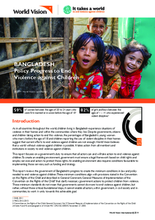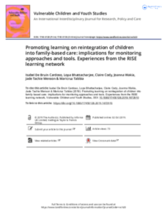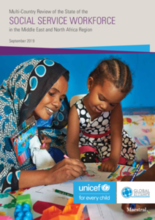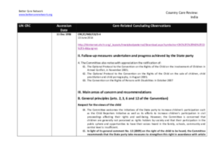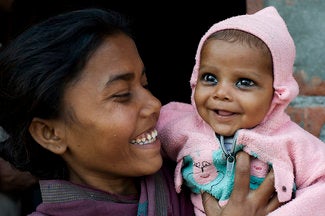

Displaying 241 - 250 of 699
The Finding the Way Home documentary highlights the painful realities of the eight million children living in orphanages and other institutions around the world, telling the stories of six children in Brazil, Bulgaria, Haiti, Nepal, India and Moldova who have found their way into the care of loving families after spending periods of their lives in an institution.
The authors of this study conducted qualitative interviews of 69 caregivers in four countries: Ethiopia, Kenya, Cambodia, and India (Hyderabad and Nagaland), and across four religious traditions: Christian (Orthodox, Roman Catholic, and Protestant), Muslim, Buddhist, and Hindu. They asked respondents to describe the importance of religion for their becoming a caregiver, the way in which religion has helped them make sense of why children are orphans, and how religion helps them face the challenges of their occupation.
The main focus of this chapter is to define institutions, their objectives and the nature of services rendered.
This report reviews the government of Bangladesh’s progress to create the minimum conditions in law and policy needed to end violence against children.
This video from World Without Orphans tells the story of Anu, who was abandoned as an infant and grew up in a large institution in India, later opening her own home for orphaned and abandoned girls. Anu came to realize that this was not the best way to care for the children and began, instead, to work within the community to provide education, food, medical care, and a way for children to remain in families.
In this cross-sectional study 86 children orphaned by AIDS residing in care giving institutions for HIV positive children in Mangalore were assessed for their clinico-epidemiological profile and nutritional status.
This article from the Vulnerable Children and Youth Studies journal presents lessons learned from a RISE Learning Network learning project focused on monitoring (M&E Learning Project) and aimed to generate understanding of approaches and tools that could effectively monitor children and families’ reintegration outcomes. The mid- and end-term reviews of the M&E Learning Project have captured lessons learned on how practitioners can approach monitoring of reintegration to mainstream it into their programme cycle.
This report is a review of the social service workforce in eight countries: Djibouti, Iran, Jordan, Lebanon, Morocco, Palestine, Sudan and Tunisia.
A State-level consultation covering legal, ethical and social aspects of children’s care, organised by the Rajasthan High Court’s Juvenile Justice Committee in collaboration with UNICEF, featured a discussion among experts on "strengthening kinship care, foster care and sponsorship which could protect the interests of orphans and ensure their upbringing in a family environment," according to this article from the Hindu.
This country care review includes the care related Concluding Observations adopted by the Committee on the Rights of the Child and the Committee on the Rights of Persons with Disabilities as part of the Committees' examinations of the periodic reports of India.

